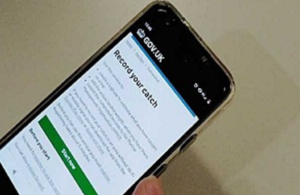Boost for teacher training bursaries by up to £10,000 a year
Graduates applying to train as teachers in high priority subjects will receive increases to tax-free cash bursaries and scholarships from next year under government plans to recruit and retain top talent.
For aspiring teachers starting their training in September 2023, bursaries worth £27,000 and scholarships worth £29,000 will draw talented trainees into the highest-priority STEM (science, technology and mathematics) subjects of mathematics, physics, chemistry and computing.
£25,000 bursaries and £27,000 scholarships will be offered to prospective languages teachers – up £10,000 on this academic year.
Bursary and scholarship eligibility is being extended to all non-UK national trainees in physics and languages.
The generous package is worth £181 million in total, up £52 million on the current academic year, and will help ensure there are excellent teachers across the country, developing the pipeline of skills that the future UK economy will need.
A new relocation premium for overseas nationals coming to England to teach or train in these subjects was confirmed earlier this year in the Schools White Paper, which will help with visa costs and other expenses.
Teachers in the first five years of their career teaching mathematics, physics, chemistry and computing in disadvantaged schools are also able to claim the Levelling Up Premium, worth up to £3,000 tax free.
Schools Minister Jonathan Gullis said:
As a former teacher, I know that investing in our teachers is investing in young people. These generous bursaries and scholarships will attract the brightest and the best into teaching.
Shoring up the talent pipeline to teach vital subject areas such as STEM and languages will, in turn, equip young people with the knowledge and skills they need to secure a bright future, and ensure that our economy remains globally competitive.
Further bursaries available include those for aspiring geography teachers, who will receive £25,000, an increase of £10,000, while £20,000 bursaries for biology and design & technology represent increases of £10,000 and £5,000 respectively on the current academic year. A £15,000 tax-free bursary for English will also be reintroduced.
The funding available is the latest step towards the Government’s intention, set out earlier this year in the Schools White Paper, for every child to be taught by an excellent teacher.
It is also part of broader work to raise the profile of teaching. Earlier this year the Government announced the highest pay awards for teachers in a generation – 8.9 percent increases for new teachers and five percent for experienced teachers and leaders – in recognition of their hard work and supporting with the cost of living, while also reflecting the need for the sound management of schools’ budgets.
Louis Barson, Director of Science, Innovation and Skills at the Institute of Physics said:
Great physics teaching opens up career opportunities in a broad and growing range of career paths: from developing new cancer treatments to tackling climate change.
We are pleased to be delivering the government’s scholarships programme for physics teachers, helping tackle the physics teacher shortage and focussing on areas with the greatest need for specialists, enhancing the life chances of local pupils.
Scholars will benefit from additional financial support, access to experienced professional coaching, high-quality resources and a mutually supportive community.

